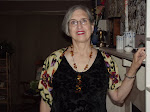It
has been a difficult week. Since I am surrounded by sad events, I’ve decided to
explore grief.
A
week ago, we found out that our nephew’s 11-year-old daughter has a life-threatening medical condition. She will require a lung
transplant as soon as she’s stable enough. Because of her young age, there are
probably several transplants ahead for her.
A
good friend died in May and we attended his Celebration of Life yesterday.
Celebrating a life doesn’t mean you wouldn’t rather have your friend alive and
well. In fact, it made me miss him more by reminding me of all we’ve lost in
losing him.
Our
son’s family left town for a vacation yesterday. Last night, he had such severe
pain that his wife took him to the ER. There’s a kidney stone lodged in his
gall bladder, an extremely painful condition, I’ve heard. He’s awaiting final
diagnosis, but it will probably require surgery. Although I expect everything
will be fine, I worry. Life is fragile. A niece the same age died unexpectedly
last January.
When
I got the news about my great-niece, I tried to tell Michael what had happened
and I couldn’t. Literally couldn’t. It triggered such anguish in me that I
could not get the words out of my mouth without sobbing. We played a ridiculous
game of charades as he tried to guess what I was failing to tell him. It went
on long enough for me to compose myself and give him the rudiments of her story.
I
know where this overpowering grief comes from: the losses of my mother, in October
2021, and of my two little granddaughters, in 2022. That pain is seared into
me.
But
what about the five stages of grief, you ask? Denial, Anger, Bargaining,
Depression, and Acceptance identified by Elizabeth Kubler-Ross in her 1969 book
On Death and Dying. Shouldn’t I be
moving through those stages, resolving my grief?
Ha!
The joke’s on all of us. Cody Delistraty, author of The Grief Cure: Looking for the End of Loss points out that
Kubler-Ross’s work applied to the dying person, not to the survivors left
behind. And even for the dying person, it was never presented as a lockstep
path forward, although people seem to believe that wholeheartedly. The
Five Stages of Grief Are Actually Wrong. Here's Why.
I
am tired of loss. I’m especially tired of losses that are not part of expected
life cycles. My mother was 99, after all. She did not die untimely. But our extended
family has had four untimely deaths – two younger adults and two children. I
pray that I don’t face any more of those.
Ciao






2 comments:
Grief sneaks up on you, even if you've done a lot of it. Bob the Writing Cat who I followed for years on Facebook just recently died. I started grieving in advance before he passed away. It didn't help. I may think I have grieved the passing of cats I loved like a child and then Bob's tender soul leaves this earth and I am gutted by the passing of every sweet kitty I have ever heard purr. I may be unconsciously bargaining with the gods when the fear of loss overcomes me when I see my loved ones vunerability. I try to save up experiences and moments. Really I guess that is the act of living in the moment, but when it comes to grief, I've got no tricks, no way to avoid it.
Thank you for sharing such a personal comment, Diana. You touched my heartstrings!
Post a Comment